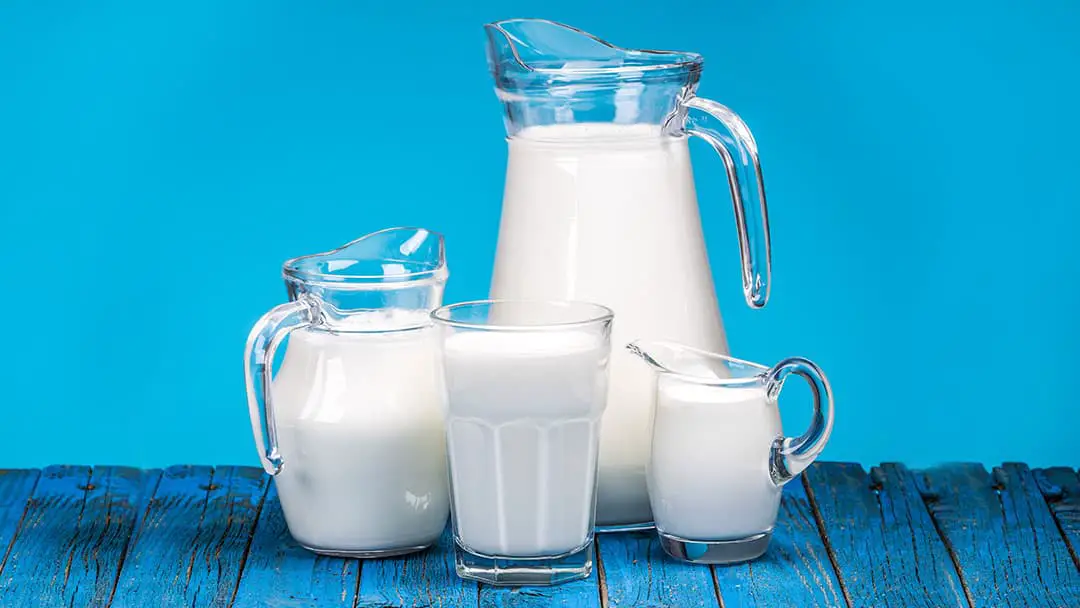9 Easy Ways to Get Calcium on a Carnivore Diet

As an Amazon Associate we earn from qualifying purchases made on our website. If you make a purchase through links from this website, we may get a small share of the sale from Amazon and other similar affiliate programs. You can read our complete legal information for more details. By using this site, you agree the information contained here is for informational purposes only. For specific medical questions, consult your doctor. NO information on this site should be used to diagnose, treat, prevent or cure any disease or condition.
Are you worried about calcium deficiency on a carnivore aka zero-carb diet? Here’s how a few people resolve it and a few ideas to consider.
The consensus in the modern-day world is that you must eat a wide range of foods, including a lot of healthy fruits and vegetables….otherwise, you are going to become a nutrient-deficient mess.
Yet people are still suffering from nutrient deficiencies, but that’s ok because you can resolve that by taking this synthetic vitamin pill or take this “superfood” root powder from the Amazon!
My view is that the food in whatever diet you follow should give you everything you need. If you HAVE to supplement all the time, then it can’t be a healthy diet…Vegans I am looking at you!
To me, supplements should be used for a specific ailment, and once resolved you stop. That is the definition of a supplement, isn’t it? To supplement an already healthy diet for a specific purpose, not to constantly need supplements because your diet is crap.
Anyway, I feel like I am going off on a rant, so let’s dial it back and take a look at calcium and how to get it into your diet with real food.

What is the carnivore diet?
It is a near zero carb diet, but not quite as there are small amounts of carbohydrates in meat, especially liver and eggs.
Oh, I should also mention dairy has carbs but some people skip eating dairy for a multitude of reasons which we go into detail with this article:
You can eat anything that is an animal product like cuts of meat, fish, seafood, dairy.
Then avoid anything from the plant world, like cereal, seed oils, sugar, fruits, and vegetables. Pretty simple really.
Yet, if you want, in my opinion, the best book on the carnivore diet then you need to read, “The Carnivore Diet” by Dr. Shawn Baker. He breaks down all the concerns you may have in a simple way and provides pertinent and easy to read suggestions.
What is calcium?
It is a mineral that helps build bones and strong teeth, helps regulate muscle contractions (so is very important for heart health), and helps ensure blood clots in a normal manner…just to name a few.
Classic signs of calcium deficiency are Rickets and Osteoporosis along with numerous other diseases. (1)

How much do I need?
Well, that’s the million-dollar question, and honestly, I do not know. I could tell you the Recommended Daily Allowance’s if you like but even that differs depending on where you are from.
The USA says it should be 1000-1200mg depending on age, the UK says 700mg, but possibly a better source for carnivores to consider is that Weston A. Price says it should be 680mg.
Friends of the Weston A Price Foundation Sally Fallon and Mary G. Enig say the following with regard to calcium, “sufficient vitamin D is needed for calcium absorption as is a proper potassium/calcium ratio in the blood. Sugar consumption and stress both pull calcium from the bones.” (2)
Do I need to track how much calcium I am having?
If you like tracking all your food, then do so. The Cronometer App is great as it breaks down all the food in amino acids, vitamins, and minerals, etc, allowing you to see where you may be deficient.
The problem is; most RDA’s, dietary apps, meal plans, mineral deficiency studies, almost everything, are based on the presumption that people are eating a Standard Western Diet.
I am of the belief that these things can be used as a guide, but a very loose guide as I don’t believe a Carnivore has the same demand for vitamins and minerals as other dieters do.
For example, we should all be right on the borderline of getting scurvy, but we aren’t. Why? Because we eat less sugar and Vitamin C compete for the same pathway into a cell.
So, the fewer carbs and sugar you eat, the less Vitamin C you may need. We even discuss vitamin C and how it relates to the carnivore diet in this article, “Do you need vitamin C on the carnivore diet?”
Also, carnivores eat zero plant foods, this means we eat zero oxalates.
Oxalates that are high in leafy green vegetables and dark chocolate have been shown to bind with calcium, meaning it can not be absorbed. (3)

So perhaps, the fewer plants you eat, the less calcium you may need.
Sally K. Norton does a great job of explaining the problems with oxalates in this article.
Oxalates are just one compound that prevents the absorption of nutrients in the human body. When looking at further plant chemicals that wreak havoc on our nutrition we can talk about these too:
- Salicylates
- Saponins
- Flavonoids
- Protease Inhibitors
- Phytic Acid
- Cyanogenic Glycosides
- Goitrogens
- Glycoalkaloids
- Lectins
You can read about these health-destroying chemicals in this fascinating article titled, “10 chemicals in plant food slowly killing you & why a vegetarian diet can harm you.”
Or just go ahead and pick up one of the best books on the carnivore diet and have that resource available when needed. That book is called, “The Carnivore Code” by Dr, Paul Saladino. He goes through all the plant chemicals and explains how they may be impacting your life and health negatively.
It can get very complicated but lets simplify it.
Do you need to consume calcium… Yes.
However, I don’t believe you need to worry about it too much. A well-rounded carnivore diet should provide all the calcium you need but as always check with your doctor with all of your diet-related concerns and symptoms.
If you want a little extra piece of mind, here are some calcium rich carnivore foods:

1. Meat
It is important to realize that all meat has traces of calcium, so if you are eating enough meat then you will likely be getting enough calcium.
This is why long-term carnivores like the Anderson family, can only eat Ribeye’s for over 20 years and not have any calcium deficiencies. There is around 60mg in a pound of Ribeye.
2. Eggs
The yolks contain traces of calcium too. So, this is another tick in the box for the classic Steak and Eggs diet. There is around 50mg in one egg.
3. Small boned fish
Such as Sardines. Any fish where you eat it whole, bones and all. There is 382mg in 100g of Sardines.
4. Bone broth
When the bones are too large to safely eat then you can make a bone broth, which leeches the nutrients from the bones, and makes for a really nutritious drink, or you can use it to make soups and stews.
Hard to quantify but there is probably about 10mg per cup.
5. Egg shells
You can grind the shells up into a powder and add them to soups, stews, and sauces. This helps thicken them up a bit while providing a calcium boost.
Just half a shell can get you 1000mg.
6. Raw milk
Most people have an idea that milk is good for bones, as it is a good source of calcium.
This is somewhat true, but raw milk is better than pasteurized. It is more nutrient-dense and bioavailable, plus contains more “good bacteria”. Raw milk has around 300mg of calcium per cup.
Warning: As with anything you eat raw it comes with the risk of infection. Source from high-quality farms and proceed at your own risk.
If you want an excellent resource on all things “Raw Milk” then check out this website, plus they show where raw milk legal and illegal:
7. Hard cheese
Especially aged ones are great for calcium. These also tend to be lower in lactose too, so are better for low carb diets and potential allergies.
Parmesan has 330mg in a 28g serving.
8. Traditional yogurt
Go for full fat natural yogurt of Greek yogurt with live bacteria. These are great snacks on a carnivore diet and have similar calcium levels as milk.
If you can, why not make your own with Raw Milk. So, you have greater control over the ingredients.
Another worthy article on this subject is:
9. Salmon
A simple can of Salmon with bones has around 300mg per 100g. This can be a great portable carnivore snack or meal on the go.
My least favorite option
If you are really struggling to get your calcium up or you are an avid gym-goer, then whey protein shakes can help with your calcium intake. I would say this is non-optimal but could be useful on occasions.
Generally, you are looking at around 200mg per shake.
If you go this route be sure it’s the good stuff. The only protein I’ve used in the past 10 years is grass-fed with one ingredient, whey.
It’s called Naked Whey.
What the pros say
Most carnivore diet advocates say that when just starting out on a carnivore diet, and you are bringing some deficiencies with you, then in the beginning you may need to target certain foods that are rich in the vitamins and minerals you are deficient in.
However, once you are healed and you have been on a carnivore diet for a while I honestly believe there is no need to track anything or worry about deficiencies but like anything health-related check with your doctor.
Personally, I don’t do that and my health is pretty darn good!
In fact, if you look at all the long-term carnivores, none of them worry about what nutrients they are getting. They mainly just eat ruminant meat and thrive. It can be that simple.

What to do now?
If you are considering a carnivore diet protocol then I highly recommend these 3 books to get you started.
- The Carnivore Diet by Dr. Shawn Baker
- The Carnivore Code by Dr. Paul Saladino
- The Carnivore Cookbook by Jessica Haggard (For a limited time use ANDY5 at checkout for $5.00 off)
Then sign up for a very affordable carnivore coaching session at MeatRX with me! Of course, they have a full roster of other coaches too.
Finally, head over to our YouTube channel and have fun with some of our carnivorous content. We have recipes and other life-enhancing and fun videos!
Disclaimer: I’m not a doctor. Consult with and ask your doctor about any diet or medical-related questions. No information on this site should be used to diagnose, treat, prevent, or cure any disease or condition. This is not medical advice.



